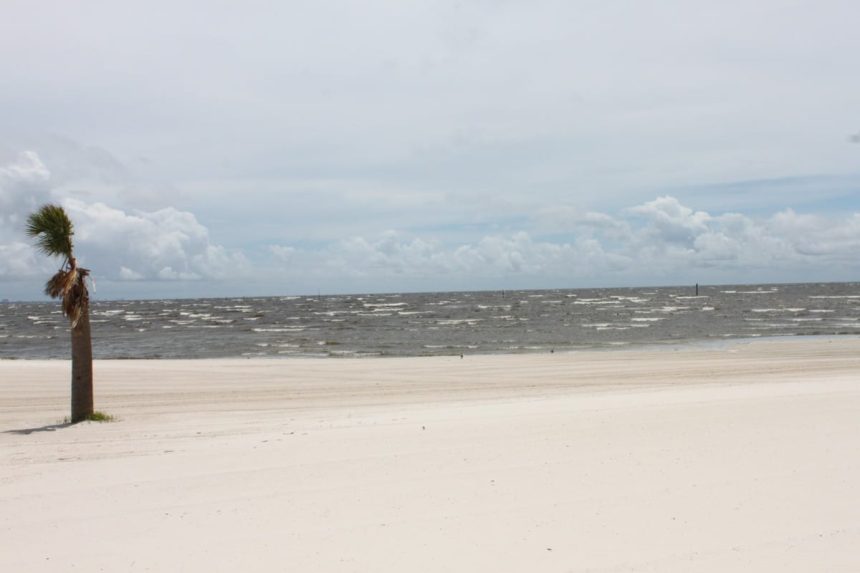The Mississippi Department of Environmental Quality has issued additional closures for four beach stations due to a blue-green Harmful Algal Bloom (HAB) that has spread into the area.
The previous closures issued for 12 other beach stations in Harrison County and Hancock County remain in effect. Sampling in the Pass Christian Harbor, the Bay St. Louis Harbor, and the Long Beach Harbor has also indicated the presence of HAB.

MDEQ also issued a water contact advisory for a segment of the Jourdan River in Hancock County from the I-10 bridge to the mouth of the river into St. Louis Bay. MDEQ recommends that people avoid water contact such as swimming, wading, and fishing.
People should also avoid eating fish or anything else taken from these waters until further notice. MDEQ encourages the public to be aware of their surroundings and notify the agency if they see HAB in other sections of the river or anywhere else on the Mississippi Gulf Coast. An algal bloom is the rapid growth of algae on the surface of the water.
The additional stations closed are:
- Station 11A – Edgewater Beach
- Station 12A – Biloxi West Central Beach
- Station 14 – Front Beach
- Station 15 – Shearwater Beach
Closures remain in effect for:
- Station 1 – Lakeshore Beach
- Station 2 – Buccaneer State Park Beach
- Station 3 – Waveland Beach
- Station 4 – Bay St. Louis Beach
- Station 5 – Pass Christian West Beach
- Station 6 – Pass Christian Central Beach
- Station 7 – Pass Christian East Beach
- Station 7A – Long Beach Beach
- Station 8 – Gulfport West Beach
- Station 9 – Gulfport Harbor Beach
- Station 10 – Gulfport Central Beach
- Station 10B – East Courthouse Road Beach
MDEQ advises people, and their pets, to avoid water contact such as swimming or wading because exposure to the blue-green HAB can be harmful. The closures refer to water contact and do not prohibit the use of the sand portion of a beach. The algae can cause rashes, stomach cramps, nausea, diarrhea, and vomiting. MDEQ advises that those who have been exposed wash with soap and water and to not eat fish or any other seafood taken from affected areas.







